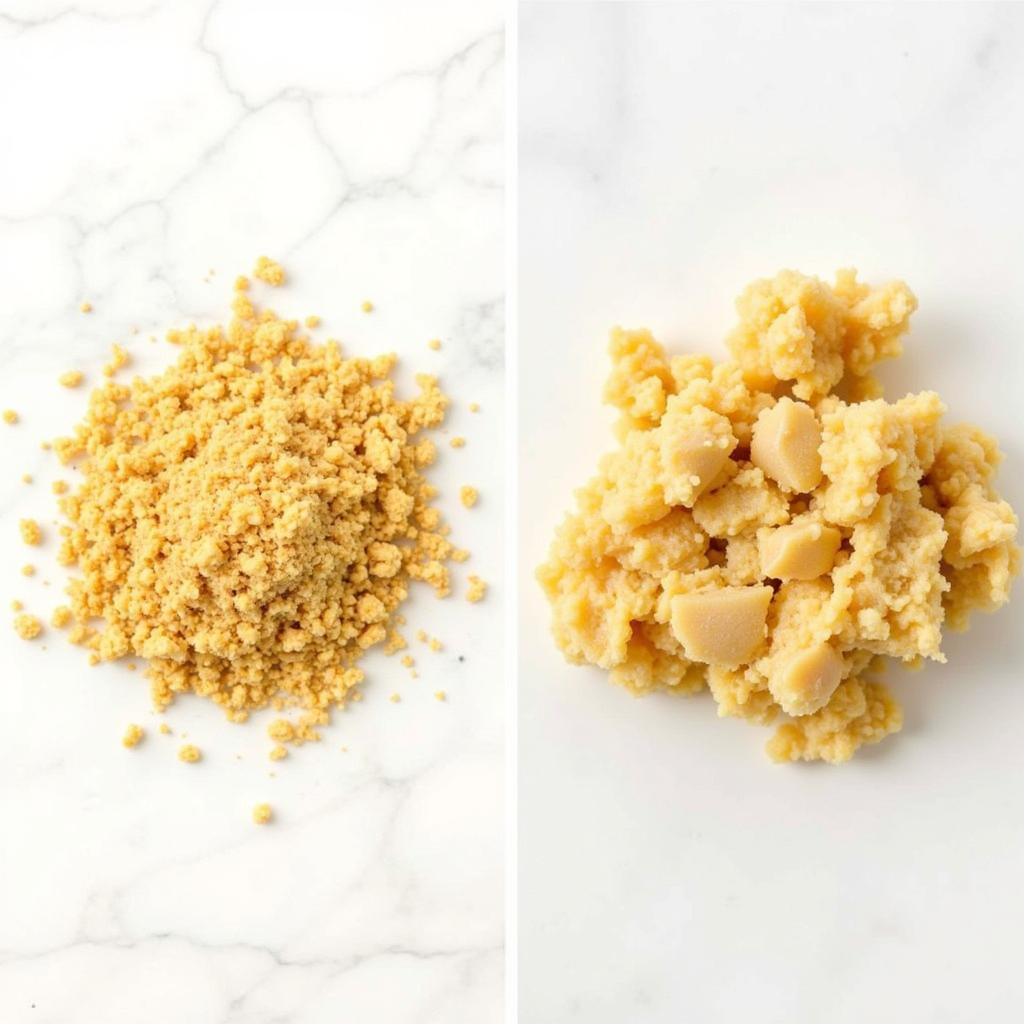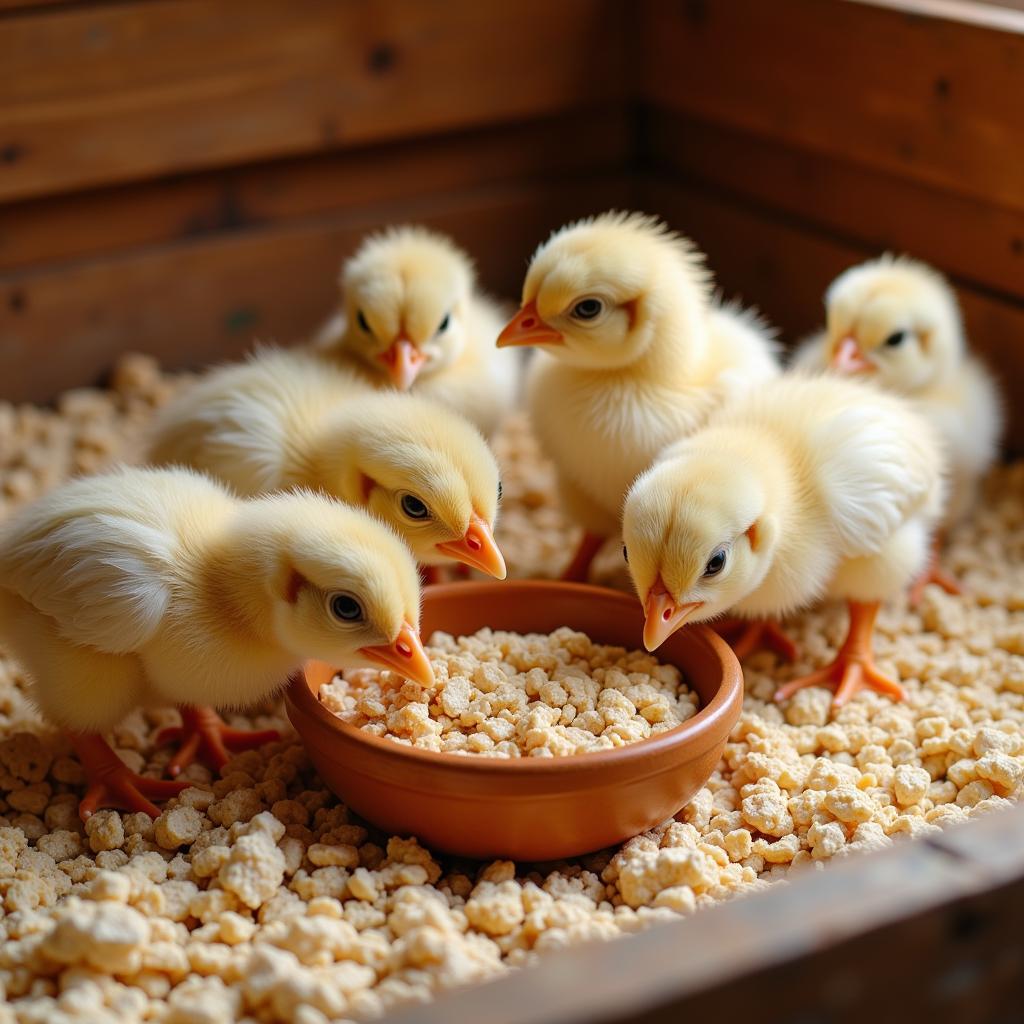When it comes to raising healthy and thriving chicks, providing them with the right starter food is crucial. Chick Starter Food is specially formulated to meet the unique nutritional needs of young chicks during their first few weeks of life. This comprehensive guide will cover everything you need to know about chick starter food, from its importance to choosing the right type and ensuring your chicks get the best possible start.
Why is Chick Starter Food So Important?
Just like human babies need specific formulas and foods, baby chicks have very specific dietary requirements. Chick starter food is designed to support their rapid growth and development during those critical early weeks. Here’s why it’s so essential:
- High in Protein: Chicks need a protein-rich diet to build muscle mass, develop feathers, and grow rapidly. Chick starter feed typically contains between 18-22% protein, significantly higher than layer feed, which is for mature hens.
- Essential Vitamins and Minerals: Starter feed is fortified with essential vitamins and minerals, including Vitamin D (crucial for calcium absorption and bone health), Vitamin A (for immune system function), and various B vitamins for energy metabolism.
- Medicated vs. Non-Medicated: You’ll encounter both medicated and non-medicated chick starter feeds. Medicated feed contains amprolium or coccidiostat, which helps prevent coccidiosis, a common and potentially fatal parasitic disease in chicks.
Choosing the Right Chick Starter Food
Navigating the world of chick starter food can feel overwhelming with so many options available. Here’s a breakdown of the key factors to consider:
1. Medicated or Non-Medicated:
- Medicated: A good choice if you’re a first-time chicken keeper, have had previous issues with coccidiosis in your flock, or are raising chicks in a less-than-pristine environment.
- Non-Medicated: Suitable for experienced chicken owners who maintain clean and sanitary brooding conditions or for those who prefer to avoid medications in their chicks’ diet.
2. Crumbles vs. Mash:
- Crumbles: Small, pelleted pieces of feed. They’re less messy than mash and easier for chicks to eat, especially as they get a little older.
- Mash: Finely ground feed that can be easier for very young chicks to eat initially. Some people find it messier as chicks tend to scratch and flick it out of feeders.
 Chick Starter Feed Textures
Chick Starter Feed Textures
3. Organic vs. Conventional:
- Organic: Made with organically grown grains and other ingredients, free from pesticides, herbicides, and antibiotics.
- Conventional: Typically more affordable than organic options.
The best choice depends on your personal preferences and budget.
Feeding Your Chicks: Tips for Success
- Start with a Quality Feeder and Waterer: Invest in chick-specific feeders and waterers designed to minimize spills and prevent drowning.
- Offer Food and Water Immediately: As soon as your chicks arrive, ensure they have access to fresh food and water at all times.
- No Need to Supplement: Chick starter feed provides all the nutrition your chicks need. Adding treats or kitchen scraps can upset their delicate digestive systems.
- Transition to Grower Feed Gradually: Around 6-8 weeks of age, you’ll transition your chicks to a grower feed, which has a slightly lower protein content. Do this gradually over a week, mixing in increasing amounts of grower feed with the starter feed to avoid digestive upset.
Common Questions About Chick Starter Food:
How much chick starter food do I need? Chicks will eat increasing amounts as they grow. Always have enough available so they can eat whenever they want. A general guideline is to provide 1-2 pounds of feed per chick for the first six weeks.
Can I make my own chick starter feed? While possible, it’s challenging to get the nutrient balance exactly right at home. Commercially produced chick starter feed ensures your chicks receive all the essential nutrients in the right proportions.
What happens if chicks eat layer feed too early? Layer feed is lower in protein and calcium, which can hinder their growth and development. It’s essential to stick with chick starter feed until they are around 6-8 weeks old.
 Chicks Enjoying Starter Feed
Chicks Enjoying Starter Feed
Providing the Best Start for Your Flock
Raising healthy chicks begins with proper nutrition. By understanding the importance of chick starter food, choosing the right type, and following these feeding tips, you’ll set your chicks up for a lifetime of health and productivity. For more insights on raising chickens and other aspects of backyard farming, explore the wealth of information available on the Mina Cones Food website, including our articles on chick food dispenser and other helpful resources.
Don’t hesitate to reach out to us at Mina Cones Food if you have any further questions! You can call us at 02437655121, email us at minacones@gmail.com, or visit us at 3PGH+8R9, ĐT70A, thôn Trung, Bắc Từ Liêm, Hà Nội, Việt Nam. Our dedicated customer support team is available 24/7 to assist you.